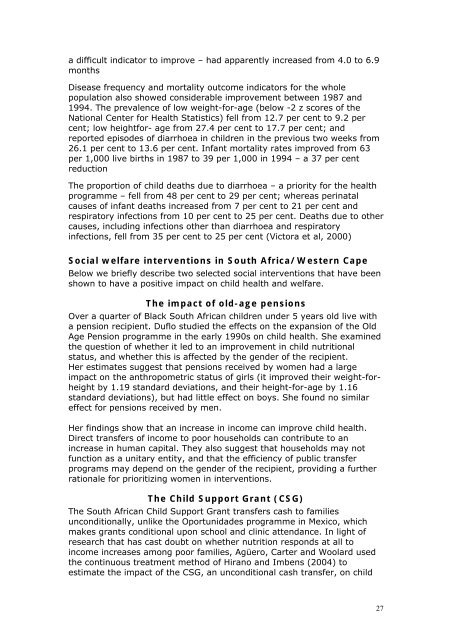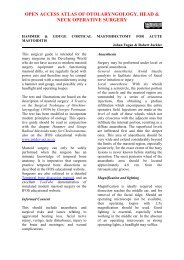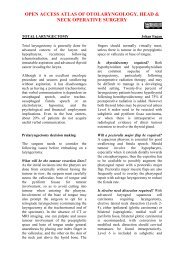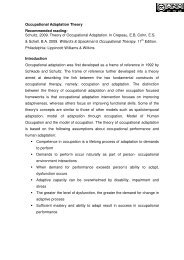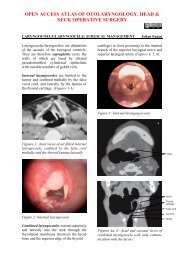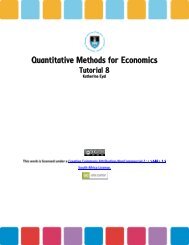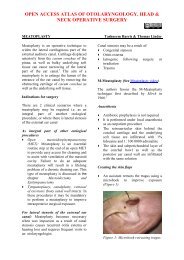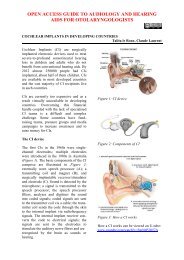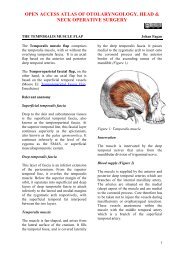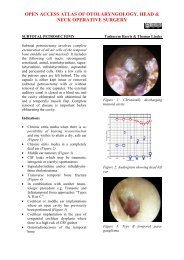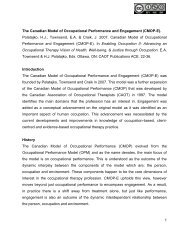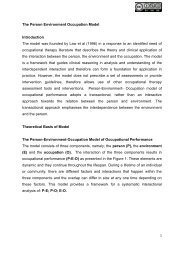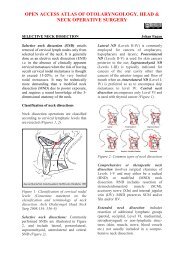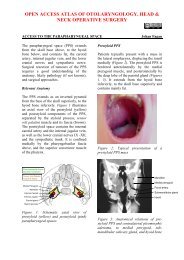Decreasing the Burden of Childhood Disease - Western Cape ...
Decreasing the Burden of Childhood Disease - Western Cape ...
Decreasing the Burden of Childhood Disease - Western Cape ...
You also want an ePaper? Increase the reach of your titles
YUMPU automatically turns print PDFs into web optimized ePapers that Google loves.
a difficult indicator to improve – had apparently increased from 4.0 to 6.9<br />
months<br />
<strong>Disease</strong> frequency and mortality outcome indicators for <strong>the</strong> whole<br />
population also showed considerable improvement between 1987 and<br />
1994. The prevalence <strong>of</strong> low weight-for-age (below -2 z scores <strong>of</strong> <strong>the</strong><br />
National Center for Health Statistics) fell from 12.7 per cent to 9.2 per<br />
cent; low heightfor- age from 27.4 per cent to 17.7 per cent; and<br />
reported episodes <strong>of</strong> diarrhoea in children in <strong>the</strong> previous two weeks from<br />
26.1 per cent to 13.6 per cent. Infant mortality rates improved from 63<br />
per 1,000 live births in 1987 to 39 per 1,000 in 1994 – a 37 per cent<br />
reduction<br />
The proportion <strong>of</strong> child deaths due to diarrhoea – a priority for <strong>the</strong> health<br />
programme – fell from 48 per cent to 29 per cent; whereas perinatal<br />
causes <strong>of</strong> infant deaths increased from 7 per cent to 21 per cent and<br />
respiratory infections from 10 per cent to 25 per cent. Deaths due to o<strong>the</strong>r<br />
causes, including infections o<strong>the</strong>r than diarrhoea and respiratory<br />
infections, fell from 35 per cent to 25 per cent (Victora et al, 2000)<br />
Social welfare interventions in South Africa/<strong>Western</strong> <strong>Cape</strong><br />
Below we briefly describe two selected social interventions that have been<br />
shown to have a positive impact on child health and welfare.<br />
The impact <strong>of</strong> old-age pensions<br />
Over a quarter <strong>of</strong> Black South African children under 5 years old live with<br />
a pension recipient. Duflo studied <strong>the</strong> effects on <strong>the</strong> expansion <strong>of</strong> <strong>the</strong> Old<br />
Age Pension programme in <strong>the</strong> early 1990s on child health. She examined<br />
<strong>the</strong> question <strong>of</strong> whe<strong>the</strong>r it led to an improvement in child nutritional<br />
status, and whe<strong>the</strong>r this is affected by <strong>the</strong> gender <strong>of</strong> <strong>the</strong> recipient.<br />
Her estimates suggest that pensions received by women had a large<br />
impact on <strong>the</strong> anthropometric status <strong>of</strong> girls (it improved <strong>the</strong>ir weight-forheight<br />
by 1.19 standard deviations, and <strong>the</strong>ir height-for-age by 1.16<br />
standard deviations), but had little effect on boys. She found no similar<br />
effect for pensions received by men.<br />
Her findings show that an increase in income can improve child health.<br />
Direct transfers <strong>of</strong> income to poor households can contribute to an<br />
increase in human capital. They also suggest that households may not<br />
function as a unitary entity, and that <strong>the</strong> efficiency <strong>of</strong> public transfer<br />
programs may depend on <strong>the</strong> gender <strong>of</strong> <strong>the</strong> recipient, providing a fur<strong>the</strong>r<br />
rationale for prioritizing women in interventions.<br />
The Child Support Grant (CSG)<br />
The South African Child Support Grant transfers cash to families<br />
unconditionally, unlike <strong>the</strong> Oportunidades programme in Mexico, which<br />
makes grants conditional upon school and clinic attendance. In light <strong>of</strong><br />
research that has cast doubt on whe<strong>the</strong>r nutrition responds at all to<br />
income increases among poor families, Agüero, Carter and Woolard used<br />
<strong>the</strong> continuous treatment method <strong>of</strong> Hirano and Imbens (2004) to<br />
estimate <strong>the</strong> impact <strong>of</strong> <strong>the</strong> CSG, an unconditional cash transfer, on child<br />
27


